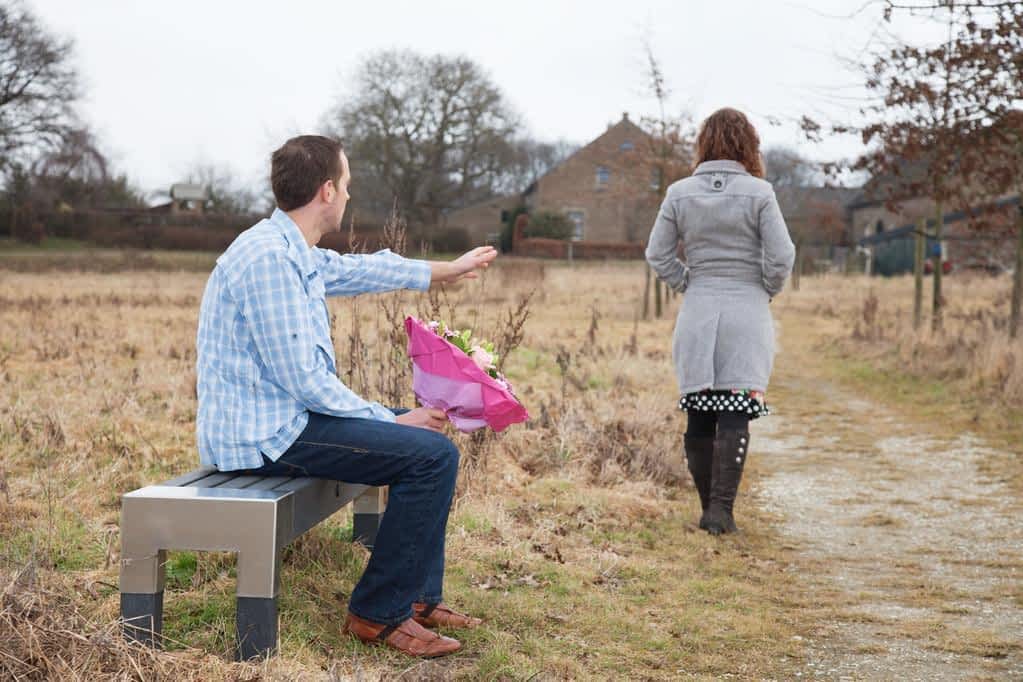Late Life Divorce: 5 Significant Emotional Survival Challenges
Late life divorce hits different, and not in a good way. When you’ve built a whole life with someone, only to watch it unravel in your fifties, sixties, or beyond, the emotional fallout can feel brutal. Late life divorce, often called gray divorce, isn’t just signing the papers, it’s picking up the pieces of an identity that was built around “we” and learning how to live in the “me” again.
Coping emotionally with late life divorce is messy, layered, and often more painful than anyone wants to admit. The emotional survival mechanisms you leaned on in your twenties probably aren’t cutting it now. Emotional healing after gray divorce is possible, but it takes guts, support, and the kind of honesty we’re about to get into.
Today, we’re diving deep into the emotional survival challenges of late life divorce: what they look like, why they hit so hard, and how to start healing even when you’re exhausted, grieving, or unsure of what comes next.
5 Emotional Survival Challenges of Late Life Divorce
Late life divorce doesn’t just crack your heart, it can shake your entire sense of self. When a decades-long marriage ends, it’s not just the relationship that’s gone; it’s the shared dreams, the routine, the identity of being someone’s partner. Suddenly waking up alone after years of “us” can feel like landing in a life you didn’t sign up for.
The emotional survival challenges are real. You might be grieving what was, what should’ve been, or what you thought you were building together. Coping emotionally with late life divorce often means untangling years of compromise, heartbreak, and silent sacrifices, while trying to figure out who you are now without them.
There may be moments when unforeseen gray divorce regrets creep in – those quiet, nagging thoughts about whether you did the right thing or what you could’ve done differently. It’s normal to question your life choices. This reflection is part of the process, even if it feels like emotional quicksand. But trust me, you won’t stay stuck there forever.

💲When Finances and Feelings Collide: The Emotional Weight of Restructuring Your Life
Late life divorce throws your finances into a blender, and then it hits “liquefy.” When you’ve spent decades building a life with someone, unraveling all those financial ties isn’t just practical; it’s deeply emotional.
You’re not just splitting up assets, you’re splitting up a life. Real estate, retirement accounts, investments, maybe even a shared business… it’s a lot. And while it might sound like it’s all about spreadsheets and legal documents, the truth is, this kind of financial restructuring in late life divorce can shake you to your emotional core.
You may feel panic rising as you wonder, Will I be okay on my own? Will I have enough? How do I even start over now? Coping emotionally with late life divorce often means confronting financial fears you never expected to face at this stage of life.
Dividing assets like retirement accounts and pensions can be especially overwhelming. The numbers are big. The tax rules are confusing. And it’s all tangled up in the emotional weight of having to plan a future you didn’t see coming. And if debt’s on the table, that adds another layer of stress no one wants to carry into this next chapter.
Then there’s spousal support. Maybe you gave up your career to raise kids. Maybe your partner outearned you for decades. Asking for alimony can feel vulnerable or even shameful, but it’s okay to ask for what you need to stay afloat.
And don’t forget about estate planning. Yep, it’s one more thing. Updating your will, changing beneficiaries, rethinking who gets what if something happens, it all feels like an emotional minefield. But it’s part of reclaiming control over your future.
These aren’t just financial logistics. They’re deeply personal decisions that hit your self-worth, your confidence, your stability. Emotional survival during gray divorce isn’t just mending a broken heart, it’s finding solid ground when everything, even your money, feels uncertain.
So if you’re crying over spreadsheets or panicking about pension plans, you’re not crazy. You’re human.

🏠When Home Doesn’t Feel Like Home Anymore: Facing Life in a New Place
One of the hardest parts of late life divorce is letting go of the home you built. Not just the physical space, but the memories, and the comfort of knowing where everything belongs and who used to sit in that chair. And when you suddenly find yourself living somewhere new, maybe alone for the first time in years, it can hit like a wave you didn’t see coming.
This shift isn’t just about square footage or furniture. It’s a massive part of your emotional survival. You’re not just unpacking boxes, you’re unpacking grief, fear, and a whole lot of what now?
You might be mourning the house you raised kids in, or simply the stability that came from knowing where you belonged. Coping emotionally with late life divorce often means grieving a space as much as a spouse. And if loneliness creeps in, especially during quiet nights or long weekends, that’s not weakness. That’s human.
Downsizing, relocating, selling property—these aren’t just real estate decisions. They’re emotional decisions dressed up as practical ones. Going through closets full of shared history can crack you wide open. And if you’re navigating all this on a tighter budget, the pressure can feel suffocating. Emotional healing after gray divorce sometimes looks like standing in a new, unfamiliar kitchen wondering how the hell you ended up here, and then slowly, over time, making that space yours.
You might feel lost right now, but give it time. The unfamiliar will eventually start to feel like home. And when it does, it’ll be a home that belongs only to you.
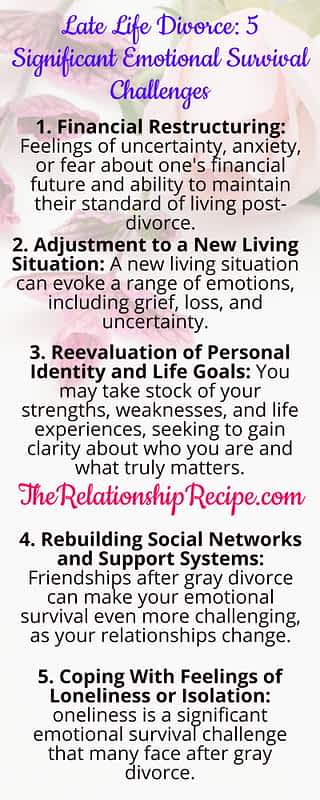
⁉️Who Am I Without Him? Rediscovering Yourself After Gray Divorce
There’s a moment after a late life divorce when the dust begins to settle, and that’s when the bigger, scarier questions show up. Who am I now? What do I even want anymore? You’ve spent decades building a life with someone. Your routines, your plans, maybe even your sense of purpose were all wrapped up in that relationship. And now it’s just… you.
And that can feel like freefall.📉
This stage isn’t just updating your resume or picking a new hobby. It’s untangling your identity from a shared past and figuring out what your life looks like when you’re at the center of it. Coping emotionally with late life divorce means making space for grief, but also for curiosity. What have you always wanted to do but didn’t? Who did you set aside in order to keep the marriage going?
Now is the time for self-reflection: not the soft, journal-entry kind (unless that helps), but the raw kind. The sit-on-the-floor, question-everything, find-the-spark-again kind. Your old goals might not fit anymore. And that’s okay. Emotional healing after gray divorce often means rewriting the blueprint entirely. Maybe you want to travel solo. Go back to school. Try something that terrifies you in the best way. Or maybe you just want peace, finally.
This isn’t a midlife crisis. It’s a midlife becoming.
This process is not linear. One day, you’ll feel empowered. The next, you’ll feel completely lost. That’s normal. Be gentle with yourself. Show yourself the compassion you probably gave freely to everyone else for years. You’re allowed to change your mind. You’re allowed to take your time. You’re allowed to be the hero of your own story now.
You don’t have to know who you are right this second. But every small choice you make from here on out is a breadcrumb leading you back to yourself.

👭When Friends Disappear After Divorce: Rebuilding Your Circle in the Wake of Gray Divorce
It’s not just the marriage that ends. Sometimes, your social life takes a hit too. People you laughed with, leaned on, invited over for holidays might vanish without explanation. Or worse, they stay, but everything feels… different.
Navigating friendships after late life divorce is its own kind of emotional survival. Some friends might feel awkward, unsure of what to say. Others may quietly choose your ex’s side, or distance themselves altogether because your new single status unsettles their own marriage. You might lose people you thought were lifers.
That hurts.
And yet, it can also clear space. Coping emotionally with late life divorce means learning how to find, or create the support you truly need. Some relationships simply won’t survive this transition. Others may surprise you. An old friend may reappear. A casual acquaintance may step up in a big way. You’ll start to see who genuinely shows up when everything else falls apart.
As your identity shifts, so do your needs. Maybe you no longer want to be part of couple-centric social circles. Maybe you want deeper conversations, more adventure, or just someone to text when you’re having a rough day. Emotional healing after gray divorce involves seeking connection that feels aligned with who you’re becoming, not just who you were in the marriage.
So where do you begin?
Try something new. Join a book club, sign up for a class, volunteer. Yes, it’s awkward at first. Yes, you’ll feel vulnerable. But you’re not just rebuilding your social life. You’re creating a new ecosystem that actually supports this next version of you. The one who’s learning to stand on her own, maybe for the first time in years.
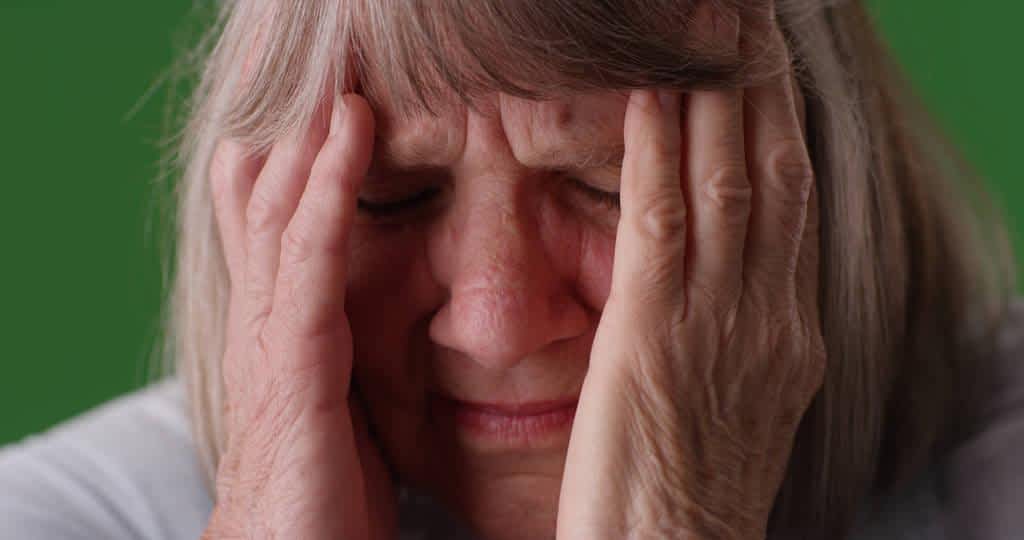
😢When the Silence Is Loud: Coping With Loneliness After Gray Divorce
No one tells you how loud the silence can be. You think you’re ready for the next chapter after a long marriage ends, until the quiet hits. The empty house. The solo dinners. The weekend mornings that stretch on with no one to talk to. Loneliness after gray divorce isn’t just a passing mood. It’s a real, deep ache that can sneak into the quiet moments and catch you off guard.
For many, the partner you once leaned on emotionally (even if the relationship was rocky) is suddenly gone. If your kids are grown and gone too, you’re hit with a double wave, gray divorce and empty nest syndrome. That kind of emptiness isn’t just emotional, it’s physical. It lives in your body. Your sleep gets weird. Your chest tightens. Your energy dips. It’s not just grief, it’s emotional survival mode.
And then there’s the stigma. Some people, family, friends, your community, still quietly whisper about “divorcing at your age.” Like you’ve broken some unspoken rule. That kind of shame is sneaky. It isolates you before you even realize what’s happening.
Loneliness is a feeling, not a life sentence.
Emotional healing after gray divorce starts with acknowledging the ache without judgment. You’re not weak for feeling lonely. You’re human. And you’re healing.
💡Here’s what can help:
- Talk to someone—a friend, therapist, support group. Say the words out loud.
- Move your body. Even a short walk outside can disrupt the cycle of isolation.
- Create small routines that bring structure and comfort to your day.
- Be around people, even if you don’t feel like talking. Go to the library, a café, a class. Just exist in community.
- Don’t pressure yourself to feel “better.” Just aim for connected. Even a little.
There’s no shortcut through this. But the loneliness won’t last forever. Eventually, the silence won’t feel so loud, and one day, you’ll start to enjoy your own company again.

Emotional Survival Tips for a Late-Life Divorce
Late-life divorce isn’t just the end of a marriage. It’s the unraveling of a life you’ve known for decades. And the emotional survival part, no one warns you about. It’s not just paperwork and logistics. It’s about grief, fear, relief, hope, confusion – all wrapped into one exhausting package.
So how do you prepare emotionally for a late life divorce when the stakes feel so high and your identity feels shaken?
1. Start With Brutal Honesty
Ask yourself why this divorce is happening. Not the surface-level stuff, but the real reasons. Is it neglect? Betrayal? Loneliness that became unbearable? You can’t move forward until you’ve owned your truth, without shame.
2. Build a Circle You Trust
You don’t need a crowd, but you do need support. A couple of friends, a therapist, maybe even a divorce support group. Coping with divorce later in life can be isolating, and connection is your lifeline.
3. Educate Yourself About the Process
Uncertainty breeds anxiety. The more you understand the legal and emotional terrain ahead, the less powerless you’ll feel. Read up. Ask questions. Advocate for yourself.
4. Prioritize Emotional Maintenance
This isn’t the time to abandon your well-being. Walk. Meditate. Cry. Journal. Scream into a pillow. Do whatever you need to process, not suppress. Your nervous system is taking a hit, so treat it gently.
5. Don’t Rule Out Counseling
Even if you’re past the point of fixing things with your spouse, therapy helps you sort your inner chaos. It gives structure to your grief and language to your fear.
6. Visualize Life After Divorce
You don’t need a full 10-year plan. But it helps to imagine a version of yourself thriving again—dating, traveling, sleeping peacefully in your own bed. Divorce after 50 is not the end. It’s a bold new chapter.
7. Let Yourself Be a Work in Progress
There’s no playbook for this. One day you’ll feel strong, the next day gutted. That’s normal. Stay flexible. Let your feelings change without judging them.
8. Look for the Silver Linings (Even Small Ones)
Maybe you get the whole bed now. Maybe you no longer have to compromise on what to watch or how to spend your weekends. Little wins count. Emotional survival sometimes looks like finding peace in the mundane.
9. Know Your Rights
Fear of the unknown breeds helplessness. Talk to a lawyer. Even just one consult can help you feel more grounded and less like you’re fumbling in the dark.
10. Take One Day at a Time
No one has it all figured out. Not even the people who look like they do. Focus on today. Get through it. Then get through the next. That’s how healing works: slowly, steadily, and on your own terms.
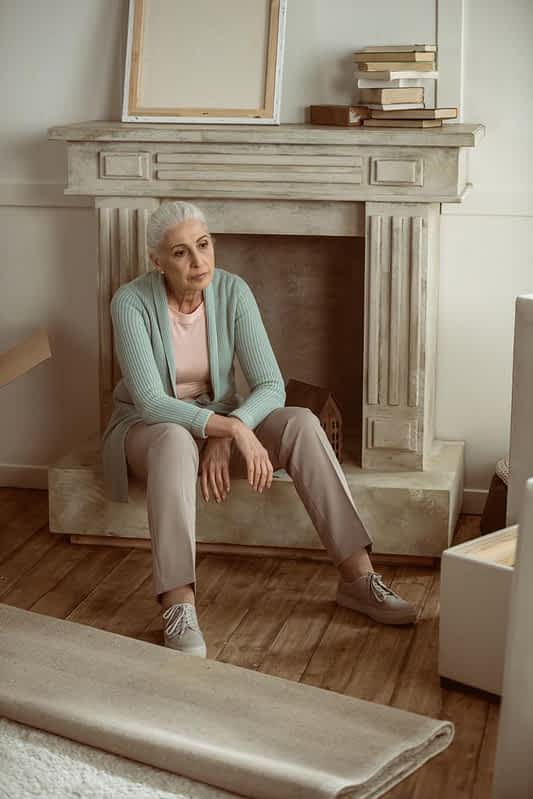
Wrapping Up
Divorce later in life isn’t just a legal decision; it’s a deep emotional reckoning. And your emotional survival during a late-life divorce isn’t something you power through in a straight line. It’s a winding, messy, brave journey that takes resilience, raw honesty, and a whole lot of self-compassion.
Gray divorce comes with its own unique weight – splitting assets you’ve built together, redefining friendships, staring down an empty house or an uncertain future. But it also cracks open the door to something else: reinvention, self-rediscovery, and the freedom to live life on your terms.
Before You Go…
This is one of my favorite books on late life divorce. I read it several years ago and found it rather enlightening as it discusses the point of view from both men and women:
Gray Divorce: What We Lose and Gain from Mid-Life Splits
This book focuses on the challenges and changes of going through a late life divorce.
“Gray Divorce” discusses the rising trend of divorces among couples over 50. Jocelyn Elise Crowley explores reasons, impacts, and gender differences in this mid-life transition, shedding light on economic and social consequences. With insights on individual shifts, life expectancy, and economic disparities, Crowley advocates for supportive policies to aid those navigating this challenging journey.

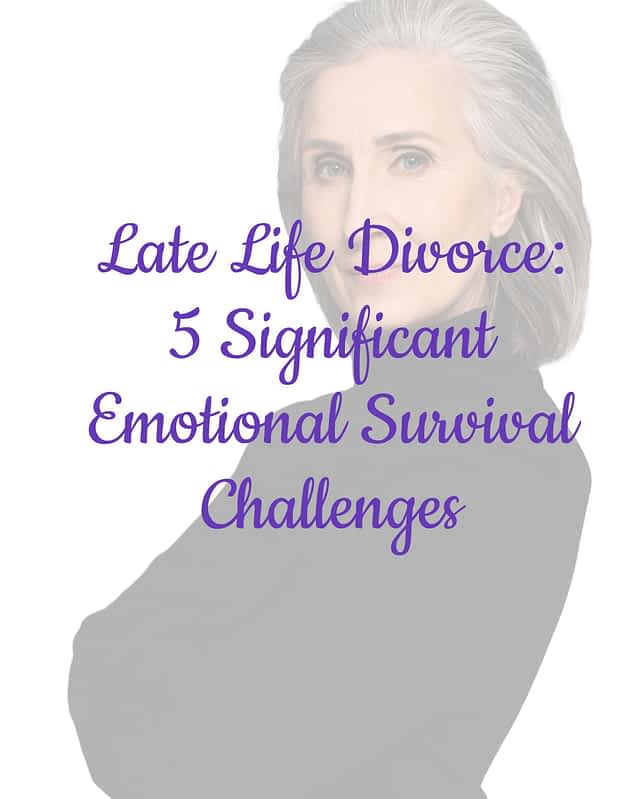
Thank you for reading this post, don't forget to subscribe!




